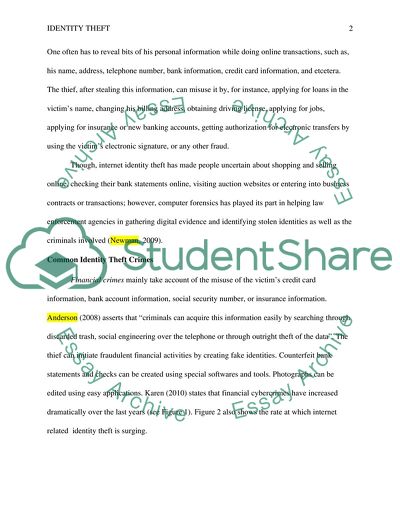Cite this document
(Common Identity Theft Crimes Research Paper Example | Topics and Well Written Essays - 2000 words, n.d.)
Common Identity Theft Crimes Research Paper Example | Topics and Well Written Essays - 2000 words. Retrieved from https://studentshare.org/law/1736196-identity-theft
Common Identity Theft Crimes Research Paper Example | Topics and Well Written Essays - 2000 words. Retrieved from https://studentshare.org/law/1736196-identity-theft
(Common Identity Theft Crimes Research Paper Example | Topics and Well Written Essays - 2000 Words)
Common Identity Theft Crimes Research Paper Example | Topics and Well Written Essays - 2000 Words. https://studentshare.org/law/1736196-identity-theft.
Common Identity Theft Crimes Research Paper Example | Topics and Well Written Essays - 2000 Words. https://studentshare.org/law/1736196-identity-theft.
“Common Identity Theft Crimes Research Paper Example | Topics and Well Written Essays - 2000 Words”, n.d. https://studentshare.org/law/1736196-identity-theft.


